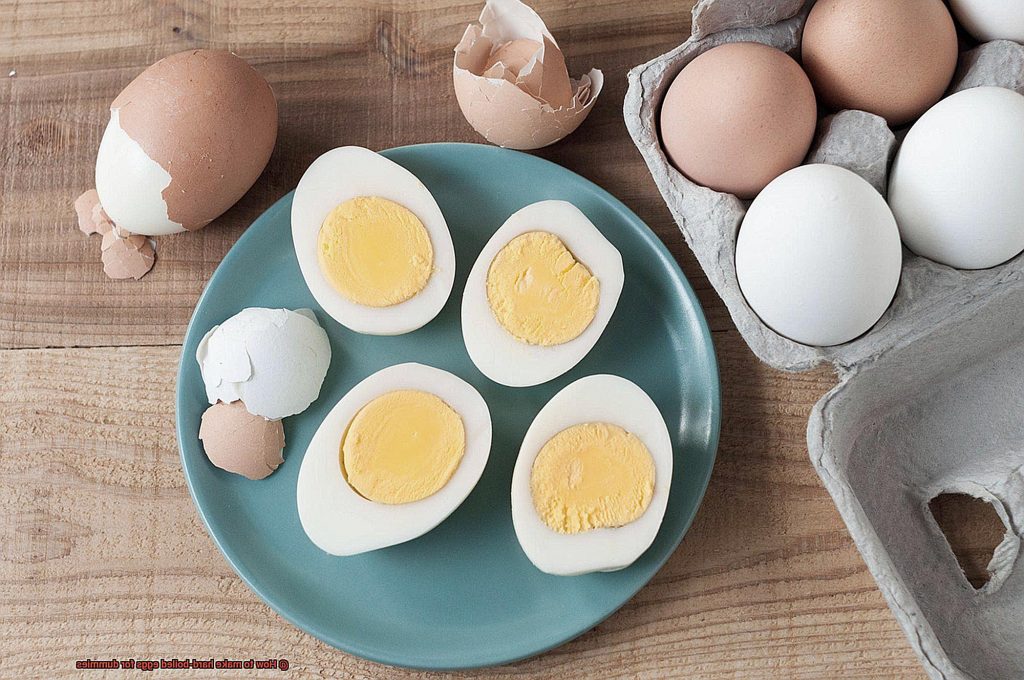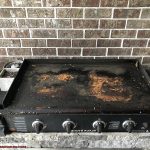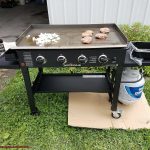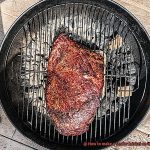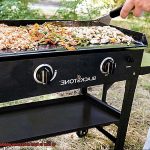Do you dread the thought of making hard-boiled eggs, only to end up with a disappointing and unappetizing result? Are you tired of trying different methods, but still can’t seem to get it right? Fear not. We’re here to help you make perfect hard-boiled eggs every time, even if you’re a complete novice in the kitchen.
But wait, before we dive into the nitty-gritty of egg boiling, let’s talk about why hard-boiled eggs are worth your time. Did you know that they’re not only delicious but also incredibly nutritious? Packed with protein, healthy fats, vitamins, and minerals, hard-boiled eggs are a true superfood. Plus, they’re versatile and can be used in countless dishes – from deviled eggs to ramen bowls.
So whether you’re a broke college student or a busy parent trying to whip up a quick meal for your family, mastering the art of making hard-boiled eggs is an essential kitchen skill. In this post, we’ll walk you through step-by-step on how to boil, cool and peel eggs like a pro. And don’t worry if things don’t go as planned – we’ve got some troubleshooting tips too.
So grab your apron and let’s get cracking. With our guidance and some basic kitchen tools and ingredients at hand, you’ll soon become an egg-spert at making perfect hard-boiled eggs.
Contents
What You Need to Make Hard-Boiled Eggs
Making hard-boiled eggs may seem like a simple task, but it can be frustrating when you end up with undercooked or overcooked eggs that are impossible to peel. Fear not, because with just a few basic ingredients and tools, you can make perfect hard-boiled eggs every time.
Firstly, ensure you have enough fresh eggs for the number of servings you need. Fresh eggs have a lower pH level, which makes the shells easier to peel. You will also need a pot large enough to hold all your eggs in a single layer, water to cover the eggs by about an inch and a timer to keep track of cooking time.
Once you have your ingredients ready, place the eggs in a single layer at the bottom of the pot and cover them with cold water. Turn on the heat and wait for the water to come to a rolling boil. Set your timer for 12 minutes if you want your eggs hard-boiled or adjust accordingly for your preferred softness.
After cooking, remove the pot from heat and drain hot water. Transfer the eggs immediately into an ice-cold water bath to stop further cooking. Let them sit in the cold water for a few minutes until they’re completely cool.
Now it’s time to peel your eggs. Gently tap each egg on a hard surface to crack the shell all around, then peel off under running water to make it easier.
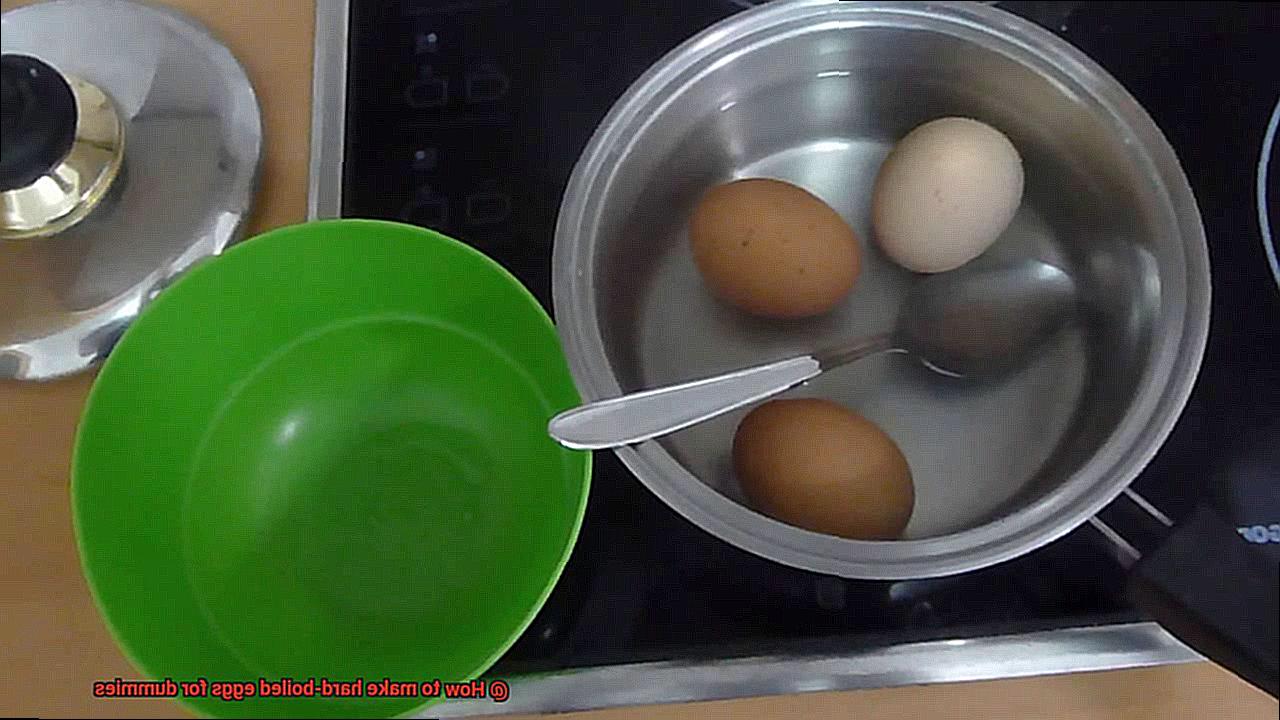
If you want to take your egg-boiling game up a notch, you can invest in optional equipment like a slotted spoon or an ice bath. A slotted spoon can help remove eggs from boiling water without cracking them while an ice bath can help stop cooking and make peeling easier.
How to Boil the Eggs
Boiling eggs to perfection is an art that requires attention to detail. Here are five crucial steps to follow to achieve the perfect hard-boiled egg.
Step 1: Choose the Right Eggs
Fresh eggs are vital for easy peeling. If you have older eggs on hand, let them sit in the fridge for a week before boiling. This will create an air pocket between the shell and membrane, making it easier to peel.
Step 2: Prepare Your Pot
Place your eggs in a single layer at the bottom of a pot and fill it with enough cold water to cover them by about an inch. Place the pot on the stove and turn up the heat to high.
Step 3: Boil the Water
Wait for the water to come to a rolling boil before turning down the heat to low. Carefully place the eggs in the pot using a slotted spoon.
Step 4: Timing is Crucial
For hard-boiled eggs, let them cook for 9-12 minutes depending on their size and how well-done you prefer them. Once done, remove them from the pot using a slotted spoon and transfer them to a bowl filled with ice water. This will stop the cooking process and prevent overcooking or undercooking.
Step 5: Peel with Ease
To peel the eggs, gently tap each egg on a hard surface to crack the shell all around. Begin peeling from the bottom of the egg where there’s an air pocket, which will make it easier to peel. If you’re having trouble peeling, try adding a teaspoon of baking soda or vinegar to the boiling water before cooking.
Tips and Tricks:
Letting your eggs gently cook in residual heat will give you a smooth texture without a greenish ring around the yolk. If you’re cooking a large batch of eggs, avoid overcrowding the pot as this can lead to uneven cooking.
Tips for Peeling Hard-Boiled Eggs
Peeling hard-boiled eggs can be a tedious task, but with a few tips and tricks, you can peel them like a pro. Here are five methods to make the process smoother.
Age Matters
The fresher the egg, the harder it is to peel. Older eggs have a larger air pocket, which makes them easier to peel. So, it’s best to use eggs that are at least a week old.
Cool Down
Before peeling, make sure the eggs have cooled down completely. Place them in an ice bath for a few minutes after boiling. This allows the egg white to contract, making it easier to separate from the shell.
Crack and Roll
Gently tap the egg on a hard surface, cracking the shell all over. Then, roll the egg between your palms to loosen the shell further. This method helps break up any stubborn membranes that may be sticking to the egg.
Add Baking Soda or Vinegar
Adding a teaspoon of baking soda or vinegar to the boiling water helps break down the eggshell’s proteins and makes it easier to peel. This raises the pH level of the water, making it easier for the shells to separate from the egg white.
Peel Under Running Water
Peeling under running water helps flush away small pieces of shell and makes it easier to grip and remove any remaining shell.
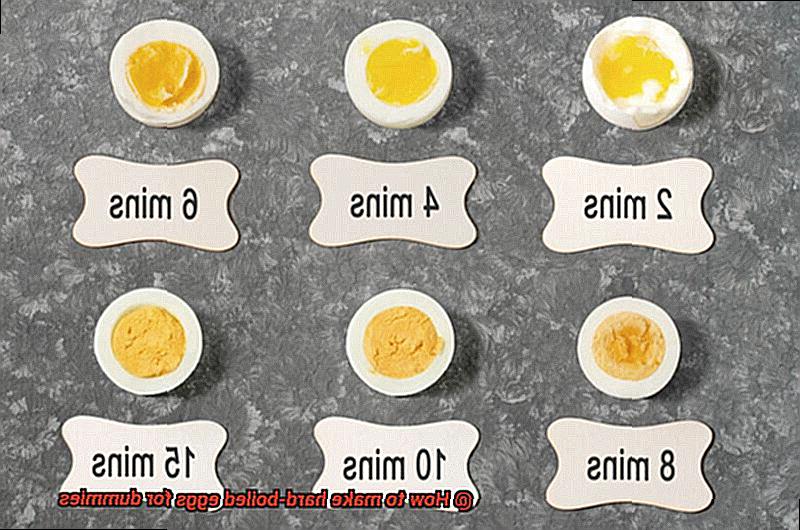
Use a Spoon
If all else fails, try using a spoon to gently scoop out the egg from the shell. This method works particularly well for eggs that are difficult to peel.
Benefits of Eating Hard-Boiled Eggs
Look no further than hard-boiled eggs. These little gems are easy to prepare and come packed with a host of health benefits.
First and foremost, hard-boiled eggs are an excellent source of protein. With around 6 grams of protein per large egg, they’re perfect for anyone looking to build or maintain muscle mass. And at only 78 calories per egg, they won’t sabotage your diet.
But that’s not all – hard-boiled eggs also contain a variety of essential vitamins and minerals. They’re rich in vitamins A, D, E, K, B6, and B12, as well as calcium, iron, and potassium. These nutrients are crucial for maintaining good health and can help prevent chronic conditions like heart disease and osteoporosis.
Another crucial nutrient found in hard-boiled eggs is choline. This nutrient is vital for brain health and can help regulate mood, improve memory, and reduce the risk of cognitive decline.
Hard-boiled eggs are also incredibly versatile. You can eat them on their own as a quick snack or add them to salads, sandwiches, or other dishes to boost their nutritional value. Plus, they’re easy to prepare – just boil them up and you’re good to go.
In summary, the benefits of eating hard-boiled eggs are numerous and varied. Here’s a list of just a few:
- High protein content
- Essential vitamins and minerals
- Improved brain function
- Versatility in cooking
How to Store Hard-Boiled Eggs
Storing hard-boiled eggs may seem like a no-brainer, but there are some important things to keep in mind to ensure their freshness and safety. Here are five tips on how to properly store hard-boiled eggs:
Cool them down
After boiling your eggs, don’t rush to store them – let them cool down first. Place them in a bowl of cold water for a few minutes until they are cool enough to handle. This will prevent condensation from forming inside the container and causing bacterial growth.
Refrigerate in an airtight container
Once the eggs have cooled down, store them in an airtight container or ziplock bag in the fridge. This will help prevent any odors from other foods from seeping into the eggs, which can alter their taste and smell. Hard-boiled eggs can be safely stored in the fridge for up to one week.
Keep them separate
To avoid any cross-contamination, it’s important to keep hard-boiled eggs separate from other foods in the fridge. This is especially important if you have raw meat or fish in the same fridge as your eggs, as these items can harbor harmful bacteria that can contaminate your eggs.
Label and date the container
To keep track of how long your hard-boiled eggs have been in the fridge, label and date the container you’re storing them in. This will help you determine if they are still safe to eat. Generally, hard-boiled eggs should be consumed within one week of being stored.
Peel before storing (optional)
Some people prefer to peel their hard-boiled eggs before storing them, while others prefer to leave them unpeeled. If you choose to peel your eggs before storing them, make sure to dry them off with a paper towel first to remove any excess moisture. Alternatively, you can store unpeeled hard-boiled eggs and peel them just before eating.
Variations on Classic Hard-Boiled Egg Recipes
Let’s start with the ever-popular deviled egg. While it’s always a crowd-pleaser, why not mix it up a bit? Try adding crispy bacon bits or chopped herbs like chives or dill for an extra burst of flavor. Feeling adventurous? Mash in some avocado for a creamy twist on this classic appetizer.
Egg salad is another staple that can be easily customized. Elevate your egg salad game by adding diced pickles or capers for a tangy crunch. Or, if you’re feeling bold, add a pinch of curry powder to spice things up. For a quick and satisfying lunch or snack, serve your egg salad on toasted bread or crackers.
If you’re looking for something healthier, hard-boiled eggs can also be used in salads. A spinach and egg salad is simple yet delectable – just toss baby spinach leaves with sliced almonds and a simple vinaigrette dressing before adding in some sliced hard-boiled eggs. Or go all out with a Nicoise salad including boiled potatoes, green beans, olives, tuna, and of course, hard-boiled eggs.
Now, let’s talk about “egg pops”. These fun and easy-to-make appetizers are perfect for parties or as a quick snack. Simply peel the hard-boiled eggs and insert a wooden skewer or popsicle stick into the center. Brush with olive oil and sprinkle with salt and pepper before serving – your guests will love these cute and tasty treats.
Common Mistakes When Making Hard-Boiled Eggs
The process of boiling eggs may seem simple, but there are common mistakes that can ruin the perfect hard-boiled egg. Don’t worry though, with these expert tips and tricks, you’ll be making perfect hard-boiled eggs in no time.
Firstly, the type of egg you use is crucial. Contrary to popular belief, fresh eggs aren’t the best choice for boiling because they are more difficult to peel. Choose eggs that are at least a week old if you want easy-to-peel hard-boiled eggs.
Next up, let’s talk about boiling the eggs. One common mistake is not using enough water or boiling it too quickly, which can cause the eggs to crack and uneven cooking. Ensure the eggs are fully submerged in water and bring it to a boil slowly over medium heat.
Timing is everything when it comes to boiling eggs. Overcooking them can result in a rubbery texture and unappetizing greenish-gray rings around the yolk. On the other hand, undercooked eggs will have runny yolks and soft whites. Follow the recommended cooking time and use a timer to ensure perfectly cooked hard-boiled eggs every time.
Peeling hard-boiled eggs can be a daunting task, but don’t fret. Avoid peeling them while they’re still hot, as this can lead to burned fingers and torn egg whites. Let them cool down before peeling and running cold water over them can help loosen the shells.
Troubleshooting Guide for Making Perfect Hard-Boiled Eggs Every Time
Perhaps you struggle with peeling the shell off without making a mess. Fear not, making perfect hard-boiled eggs can be tricky, but with a bit of troubleshooting, you’ll be able to master this art in no time. Here’s your ultimate guide to troubleshooting and making perfect hard-boiled eggs every time.
Let’s start with the most common issue – undercooked or overcooked eggs. To avoid this problem, make sure to follow the correct cooking time. A general rule of thumb is to boil the eggs for 10-12 minutes, but this can vary depending on the size of the eggs and your altitude. To ensure that your eggs are perfectly cooked, use a timer and test one egg after 10 minutes of boiling. If the yolk is still runny or soft, boil for an additional minute or two. And if it has a greenish-gray color and a dry, crumbly texture, then you’ve boiled it for too long.
But what if you struggle with peeling the shell off? This can be frustrating and time-consuming, but there are a few tricks that can make peeling easier. Start by gently tapping the boiled egg on a hard surface to create small cracks all over the shell. Then, roll the egg between your hands to loosen the shell. Finally, peel the shell off starting at the larger end of the egg.
If you’re still having trouble peeling your hard-boiled eggs, try adding a teaspoon of baking soda or vinegar to the boiling water. This will help loosen the membrane between the egg white and shell, making it easier to peel. And once you’ve successfully peeled your egg, feel free to slice it up and add it to your favorite salads or sandwiches.
Lastly, if you’ve ever experienced an unpleasant odor when boiling eggs, don’t worry – it’s not just you. This odor is due to sulfur compounds in the egg white reacting with iron in the yolk. To reduce this odor, simply add a pinch of salt or a tablespoon of vinegar to the boiling water.
CAFRKQxICPE” >
Conclusion
In conclusion, don’t let the fear of boiling eggs deter you from enjoying this delicious and nutritious food. With a few simple tips and tricks, even the most novice cook can become a hard-boiled egg master.
Choosing the right type of egg is key – opt for fresh eggs that are a week old or less for best results. Make sure to use enough water to fully submerge the eggs and follow the recommended cooking time to avoid overcooking or undercooking.
Once cooked, cooling down the eggs before peeling is crucial for easy shell removal. Try cracking and rolling or adding baking soda or vinegar to make peeling a breeze.
Proper storage is also important – keep your hard-boiled eggs in an airtight container in the fridge for up to one week for maximum freshness and safety.
And don’t be afraid to get creative with your hard-boiled egg recipes. From classic deviled eggs to unique variations like curry egg salad, there’s no limit to what you can create with this versatile ingredient.
If you encounter any challenges along the way, don’t worry – troubleshooting tips are available to help you overcome common mistakes like undercooked or overcooked eggs or difficult-to-peel shells.

